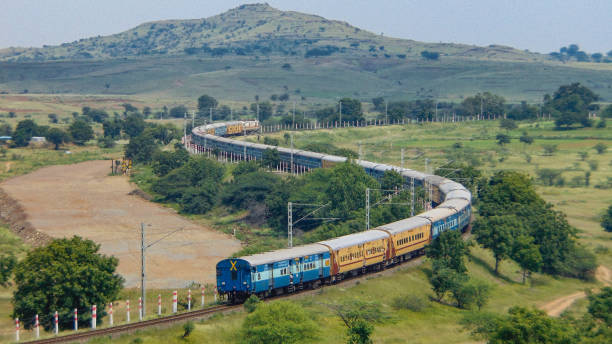Transport secretary Mark Harper has committed to Great British Railways (GBR) in this year’s George Bradshaw address, delivered at the Institution of Civil Engineers.GBR was a key outcome of the William-Shapps Plan for Rail, published in May 2021, with the purpose of ending fragmentation and integrating the country’s railways. The intention is for Network Rail to be absorbed into the new organisation, which will own the infrastructure, collect fare revenue, run trains and plan the network and set most fares and timetables. The package of reforms aims to ensure that Britain’s railways become more customer focused and financially sustainable. In his speech yesterday, Harper said: “Turning towards customers requires us to turn away from the current industry structure. So, we will establish Great British Railways, or GBR. As we prepare for that, we’ll pick up the pace of reform. I am pleased to announce that the winner of the GBR HQ competition will be revealed before Easter. And by the summer, we will respond to the consultation on GBR’s legislative powers.” Harper said GBR will treat “the railway as the whole system it should be rather than a web of disparate interests that it’s become”. He added: “Passengers won’t longer face the excuse-making and blame-shifting of years past. Instead, GBR will be wholeheartedly customer-focussed. Serving as the single point of accountability for the performance of the railway and crucially, following ministerial direction, the GBR Transition Team will develop the guiding long-term strategy for rail which we will publish later this year and I hope will provide strategic direction to the sector.” required to enact the rail reform in June 2022, when Grant Shapps was still transport secretary. In the intervening months, however, certainty around GBR has waned. In October, insiders told the i newspaper that it will be scrapped, and a week later Shapps’ short-lived successor as transport secretary, Anne-Marie Trevelyan, confirmed that the plan would not be enacted in this session of Parliament, so its projected establishment of early 2024 would not be possible.

In December, Harper Said he Would “Take Some Time To Listen.
to alternative views” about how to accomplish the intention behind GBR. Yesterday, he said that there “remains a lot of misinformation about GBR”, adding that GBR will not be “Network Rail 2.0, nor a return to British Rail”. “Taking politics out of the railways is the only way to build a truly commercially led industry and, for me, that is non-negotiable,” he said. “That’s why GBR will be an arm’s length body ensuring a balanced approach to both infrastructure and operations. With both sides getting a seat at the table and both sides delivering an efficient, high performing railway for customers. “The role of ministers is to provide strategic direction and be accountable to Parliament. It is not the role of ministers to pore over operational decisions. For example, I shouldn’t need to approve whether a passenger train ought to be removed from the timetable to allow a freight train to run instead, as I was doing earlier today. That will be left to industry experts in 5 regional GBR divisions working in partnership with regional bodies such as the Greater Manchester and the West Midlands Combined Authorities. “Similarly, we can’t take the other extreme view. Public oversight of our critical infrastructure is needed. Especially to support those passenger services that don’t turn a profit, yet still play an important economic and social role. That’s why we need a pragmatic partnership between state and industry, harnessing the necessary oversight of the state. With the dynamism, innovation and efficiency of the private sector. “This integrated model works, and not just with the railways. That was how we achieved one of the quickest and most successful Covid vaccine rollouts in the world, and its what we need to do in the railways.”


Recent Comments